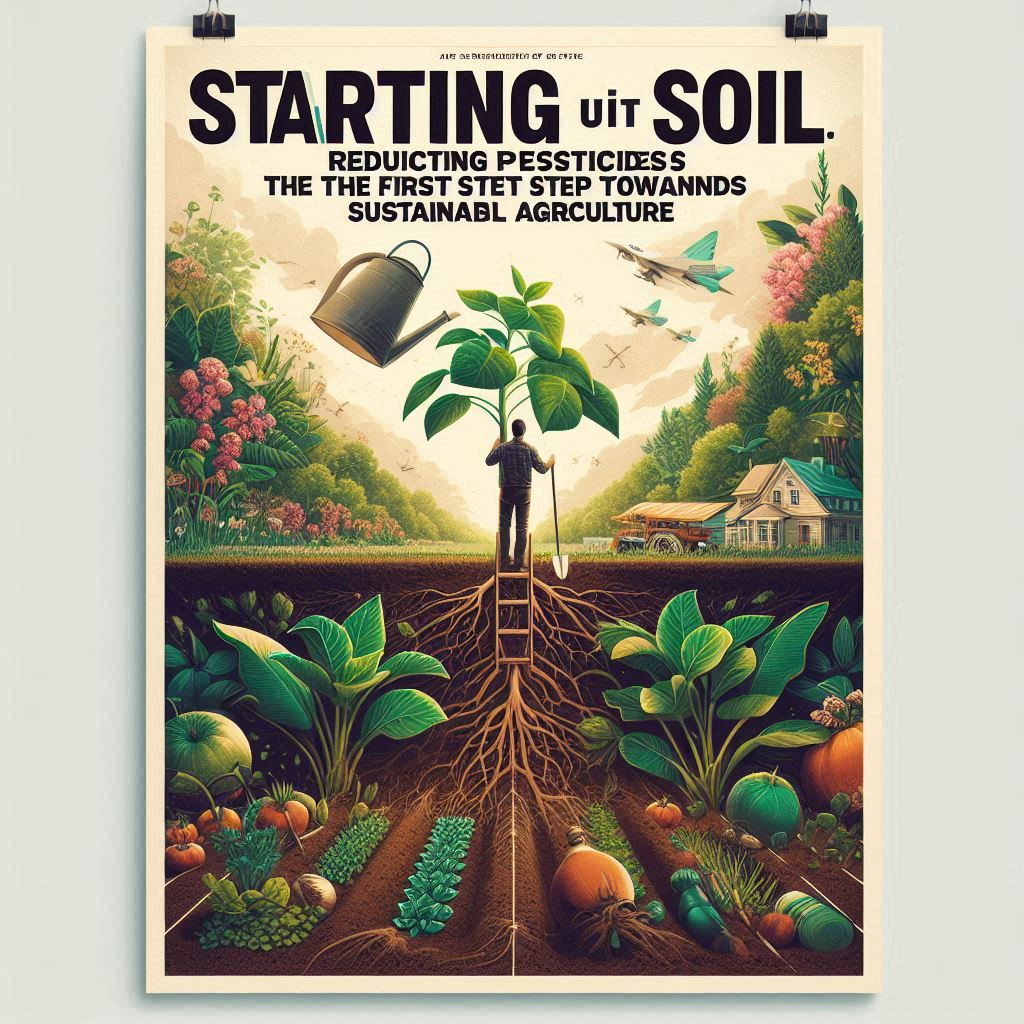
As we navigate the complexities of modern farming practices, it becomes increasingly clear that our reliance on synthetic pesticides is both unsustainable and detrimental to the very foundation of our food system.
Critics often argue that without pesticides, crop losses would be catastrophic, making it impossible to produce enough food for the 8 billion people on Earth. For decades, this argument has positioned pesticides as the silver bullet solution for pest and disease control in agriculture, alongside fertilizers.
However, the unintended consequences of widespread pesticide use are now impossible to ignore. Pesticides contaminate our soil, water, and air, disrupt delicate ecosystems, and harm beneficial organisms essential for natural pest control. From soil microbes to pollinators, these vital components of the web of life are indiscriminately wiped out by the toxic onslaught of chemical pesticides.
As a result, we have become overly reliant on chemical pesticides, neglecting natural protections and degrading soil health. This includes the loss of organic carbon and soil biology—elements that make soil a living, thriving ecosystem.
Research consistently shows that reducing pesticide use not only benefits the environment and human health but also enhances crop resilience and yields in the long run. From small-scale farms to large-scale agribusinesses, the evidence is clear: less is more when it comes to pesticides.
We find ourselves in a vicious cycle, prompting a return to sustainable agriculture. The vision of sustainable agriculture is one where we work in harmony with nature, focusing on ecosystem restoration. This vision includes rebuilding the intricate relationships that sustain life in the soil and beyond, fostering a thriving ecosystem with beneficial microbes, earthworms, beneficial insects, and healthy soil.
But where do we start? Eliminating fertilizers abruptly without preparing the soil would be detrimental. Instead, we must improve soil health before making significant reductions in fertilizer use.
Soil improvement starts with enhancing soil biology by introducing beneficial microbes and fungi, allowing them to grow in symbiosis with plants. However, the use of toxic chemicals in the form of various ‘-cides’ destroys these beneficial organisms. Therefore, reducing toxic chemical use is a necessary precursor.
Achieving this transition through mass training and skilling is ideal but challenging. While a small percentage of farmers are committed to sustainable practices, expecting widespread adoption is currently unrealistic. Extension workers often agree that a gradual approach is more feasible.
To make this shift, we must first stop harming beneficial organisms and allow them to take over the ecosystem. Reducing toxic pesticide use is the first step toward envisioning a world where soil teems with life, microbial communities thrive, and beneficial insects abound. By nurturing healthy soil biology and fostering biodiversity, we lay the groundwork for a resilient and regenerative food system.
There is a common belief that reducing pesticide use is not economically viable and requires substantial resources, training, and policy intervention. In the short to mid-term, it is seen as a difficult goal to achieve.
So, how do we reduce pesticide usage while maintaining productivity and economic goals? The answer lies in “empowering the plant” and “improving the soil” as starting points. This approach allows us to maintain productivity while feeding the 8 billion humans on Earth.
Gradually, we should prioritize soil health, biodiversity, and natural pest management. Practices such as integrated pest management (IPM), crop rotation, cover cropping, and agroforestry enable farmers to work with nature rather than against it. By fostering a deeper understanding of ecosystem dynamics and equipping farmers with the necessary tools and knowledge, we can pave the way for a pesticide-free future.
As stewards of the land, it is our responsibility to nurture and protect the fragile ecosystems that sustain life on Earth. By starting with soil and reducing our reliance on pesticides, we can cultivate a future where agriculture is not just sustainable but regenerative. Let us heed the wisdom of nature and embark on this journey together, knowing that the seeds we sow today will bear fruit for generations to come.
We will discuss how this can be achieved in our blog on Mitrasena Strategy.
There was this interesting discussion I had with Mr Prateek
The teaser of Self Running Soil Revolution for an investment
The effectiveness of any microbial product depends not just on
Mitrasena (Army of friends) is global brand of Biowall Agrihealth Pvt Ltd. Mitrasena products & protocols enables seamless transition to non-toxic farming by concurrently offering Excellent Protection, Higher Productivity & Profit and, Ease of use.
We are a DIPP recognized Startup working for non-toxic crop protection. We are driven by a highly passionate and professionally competent team.
MitraSena © 2025 | All rights reserved | Innovatively Designed and Built by Social Mukul Media
Have any query about bulk orders? Get in touch with us.